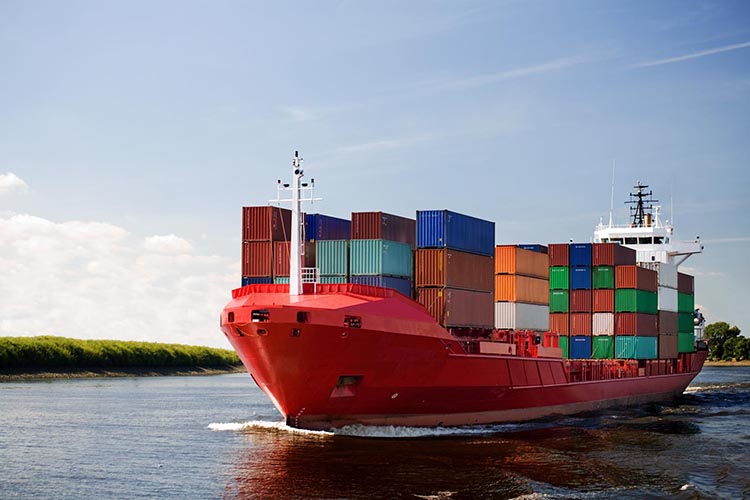
FTZ’ine January 2021
January 2, 2021
FTZ’ine March 2021
March 2, 2021Back To Business
It was QUITE the month in your nation’s capital, capped off with a frosty blanket of snow and ice. Before that heavy precipitation made your Nation’s Capital look angelic, however, there was a storming of the Capitol, a contested electoral college confirmation, and a vote in the House of Representatives that impeached a President of the United States for a historic second time.
The bruising winter storm was effective in briefly reorienting the DC narrative. An interesting effect of the pandemic is that even big storms like this one did not create the type of apoplexy that would have consumed DC just a few short years ago. Schools, offices, and agencies all know how to work from home now, and pivoting to remote work just isn’t the same news story around here anymore. With everything January threw at us now in the rear-view mirror, it is time to get back to business.
While the pandemic and the vaccine rollout continue to drive Congressional activity, the change in executive administration is already changing important conversations surrounding international trade, as you will see below.

Top Story: Madam Secretary
Tech Tip
It is a new year (one month old is still new), and each new year brings changes to filing processes at U.S. Customs. Here is a quick rundown of some resources you might want to keep handy:
And, of course, your subscription to FTZ’ine keeps you informed of all the national and international news that affects FTZ operators, users, and Grantees. Tell your friends to subscribe here.


UK TPP Aspirations May Jumpstart US FTA Talks
China’s U.S. Farm Purchases Continue To Grow


U.S. Steel Presses For Section 232 Tariff Extensions
FULL Calendar Puts MTB and GSP on Back Burner


U.S. Ban on All Cotton From Xinjiang Roils Supply Chains
FTZ Board Activity
- JJS Transportation and Distribution Co., Inc. received approval to operate its facility in Valley Stream, New York as Subzone 37F. MORE
- Rivian Automotive, LLC submitted a notification of proposed production activity for electric vehicles and components within FTZ 114 in Normal, Illinois. MORE
- OFS Fitel, LLC received authorization of production activity for optical fiber products within FTZ 26 in Carrollton, Georgia subject to limitations. Glass fiber must be admitted in privileged foreign status, and aramid yarn must be admitted in domestic status. MORE
- Volkswagen Group of America Chattanooga Operations, LLC received authorization of production activity for additional components of passenger motor vehicles within FTZ 134 in Chattanooga, Tennessee. MORE
- Economic Development Council, Inc. submitted an application to reorganize FTZ 114 under the alternative site framework in Peoria, Illinois. MORE
- Robert Bosch Tool Corporation received approval to operate its facility in West Memphis, Arkansas as Subzone 273A. MORE
- Coating Place, Inc. submitted an application for subzone status for its facility within FTZ 266 in Verona, Wisconsin. MORE
- Baxter Healthcare Corporation submitted an application for subzone status for its facility within FTZ 262 in Byhalia, Mississippi. MORE
- Lam Research Corporation received approval to expand Subzone 18F in Fremont, California. MORE
- Teijin Carbon Fibers, Inc. received an extension on the rebuttal comment period for its application for production authority within FTZ 38 in Spartanburg County, South Carolina. MORE
- BMW Manufacturing Company, LLC submitted a notification of proposed production activity for additional components of passenger motor vehicles within FTZ 38 in Charleston, South Carolina. MORE

Back To Business:
It was QUITE the month in your nation’s capital, capped off with a frosty blanket of snow and ice. Before that heavy precipitation made your Nation’s Capital look angelic, however, there was a storming of the Capitol, a contested electoral college confirmation, and a vote in the House that impeached a President of the United States for a historic second time.
The bruising winter storm was effective in briefly reorienting the DC narrative. An interesting effect of the pandemic is that even big storms like this one did not create the type of apoplexy that would have consumed DC just a few short years ago. Schools, offices, and agencies all know how to work from home now, and pivoting to remote work just isn’t the same news story around here anymore. With everything January threw at us now in the rear-view mirror, it is time to get back to business.
While the pandemic and the vaccine rollout continue to drive Congressional activity, the change in executive administration is already changing important conversations surrounding international trade, as you will see below.

